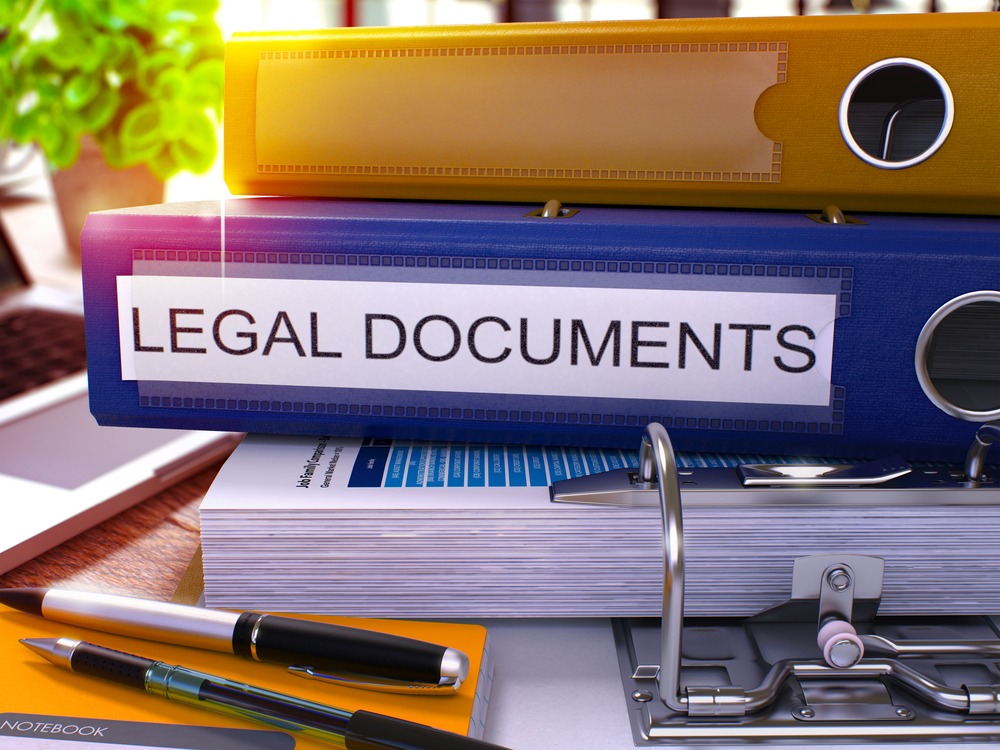 In any personal injury case, the onus of evidence lies with the plaintiff. In simpler terms, it’s up to the injured party to prove that their injury was a direct result of another person’s actions or neglect, and that they experienced measurable harm as a result. Documentation is key to providing sufficient evidence to support your case. But what type of evidence are you going to need? Keep reading to learn about a few types of documents that are essential to most personal injury cases. However, keep in mind that, due to the unique nature of every personal injury claim, the documents required for your specific case may vary.
In any personal injury case, the onus of evidence lies with the plaintiff. In simpler terms, it’s up to the injured party to prove that their injury was a direct result of another person’s actions or neglect, and that they experienced measurable harm as a result. Documentation is key to providing sufficient evidence to support your case. But what type of evidence are you going to need? Keep reading to learn about a few types of documents that are essential to most personal injury cases. However, keep in mind that, due to the unique nature of every personal injury claim, the documents required for your specific case may vary.
Medical Records
Medical records are an essential document for any case in which a physical injury occurs. It likely seems fairly obvious to you that you would need to produce medical records to prove the extent of your injuries in court. However, what many plaintiffs don’t realize is that your medical records prior to the injury may also be relevant to your case.
For example, let’s say you experienced a spinal injury in a car accident, and the other driver is deemed to be liable for those injuries. You would need to produce medical records showing the extent of those injuries and the treatment you received. However, if you had a previous spine or neck injury, those records would also be examined to determine how much those previous injuries could impact your current medical circumstances.
Receiving medical records from all of your providers can take time, so it’s important that you provide your attorney with as many records as you can as soon as possible. This can help move your case forward more quickly.
Medical Bills and Other Expenses
In addition to your medical records, you’ll also need to produce any bills relevant to the treatment of your injuries. Medical bills are the most obvious ones, including hospital bills, follow-up doctor’s appointments, surgery expenses, and even physical therapy costs. However, other expenses related to your treatment would also be pertinent to your case. These can include:
All of these expenses would have been incurred as the result of your injuries. As such, you can seek repayment for them in your case, so long as you can produce evidence of these financial losses.
Copy of Insurance Policies
Your own insurance is not always relevant in a personal injury case. However, if your case is based on a car accident—one of the most common sources of a personal injury claim—then you should provide your attorney with a copy of any relevant insurance policies. Even though you are not at fault, we need to be aware of your policies and coverage as we build your case.
Copy of Police Reports
If there is a police report of the incident that caused your injury, you should request a copy of that report for your records. You can make this request from the local law enforcement office that drafted the report. You’ll need to bring some form of government ID, and you may be asked to pay a small fee for a copy of the write-up.
For incidents that did not involve the police, you may be able to request a copy of an incident report. For example, let’s say you slipped and fell in a store, and you reported your injury to the manager. They should have written up a report of the incident for their own records. Contact the business and request a copy of that report.
Injury Diary
Unfortunately, this is one document that most people don’t think to keep after an injury occurs. However, keeping track of the pain you experience after an injury, the medications you have to take, and the things you miss out on can be a key piece of evidence in a personal injury case. It can be difficult to remember the suffering you experienced months down the road, so a diary documenting the injury’s impact on your life can demonstrate the extent of your pain and suffering for your personal injury case.
If you’ve been injured in a car accident or due to the actions or negligence of another party, contact The Harr Law Firm today. We’ll help you ensure you have the right documents in order, and advise you on the best way to pursue your personal injury case.